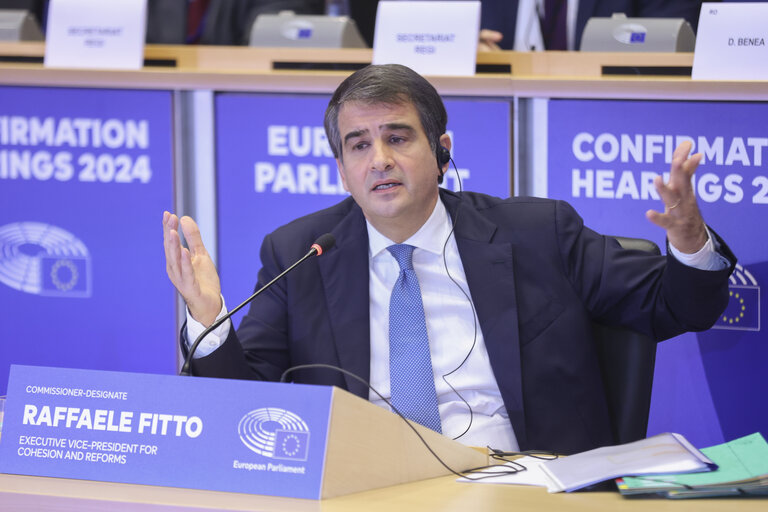Following a debate with Ursula von der Leyen on her new team and programme, MEPs elected the College of Commissioners (370 MEPs voted in favour, 282 against, and 36 abstained). During his parliamentary hearing, Raffaele Fitto said the EU’s cohesion policy needs to be simplified and more flexible.
This will be Ursula von der Leyen’s second term as Commission President, following the approval of her first Commission by MEPs in November 2019. Ahead of the vote, Ursula von der Leyen presented her team and programme, wherein she confirmed the portfolio changes requested by MEPs in the course of Parliament’s evaluation process.
Ms von der Leyen announced that the Commission’s first initiative will be a competitiveness compass, to close Europe’s innovation gap with the US and China, to increase security and independence and to deliver on decarbonisation. On the European Green Deal, she said: “we must and we will stay the course on its goals”. She committed to presenting a clean industrial deal, launch a strategic dialogue on the future of Europe’s car industry, continue working on a competitive circular economy, and work towards a European savings and investment union.
Earlier in November, the European Parliament’s Committee on Regional Development questioned Raffaele Fitto, Italian candidate for Commission Executive Vice-President responsible for cohesion and reforms. In his opening remarks, Mr Fitto stated his intention to respond to demographic challenges and to give opportunities to everyone, and in particular young people, so they can stay and thrive in their home regions. He committed to using the so-called “place-based approach” to better address local needs and to working closer together with local authorities.
Answering MEP questions on the future of cohesion policy, Mr Fitto said that it needs to be simplified and more flexible, and that the administrative burden must be reduced. For the first time, the Commission has a dedicated portfolio for simplification, he added. However, simplification cannot mean reduced transparency or scrutiny, Mr Fitto argued.
Discussing the future of cohesion policy, MEPs quizzed Mr Fitto on whether simplification would mean centralisation. They asked if he will defend “cohesion policy as we know it”, where people and regions have a strong role. Mr Fitto committed to advancing solutions that leverage the specialised knowledge of local actors, and are flexible enough to accommodate different local needs. At the same time, he wants to develop targeted approaches to local industrial policy and leverage the potential of tourism.
In response to questions about efforts to strengthen rural regions suffering from depopulation and brain drain, Mr Fitto underlined the importance of high-quality work, local administrative capacity, infrastructure (including digital) and public services in every region. He further committed to supporting talent development and employment opportunities and to accelerating the implementation of the Just Transition Fund.
Photo: © European Union 2024 – Source : EP
